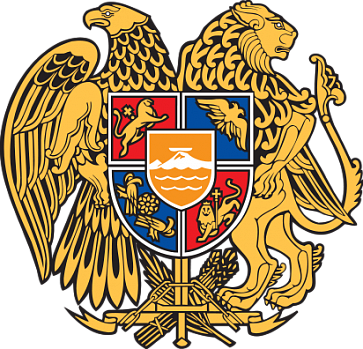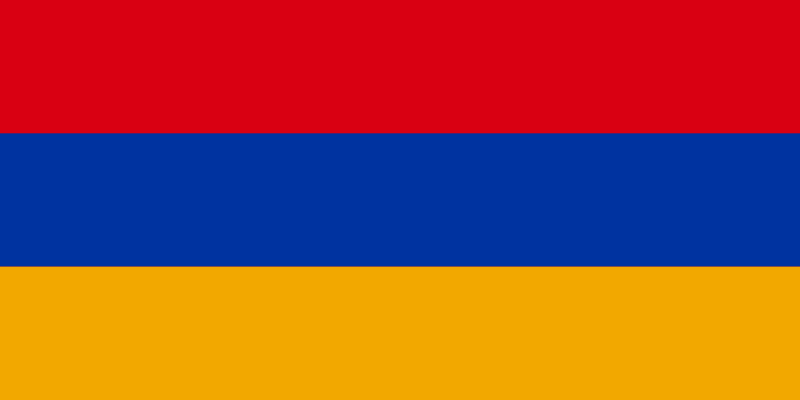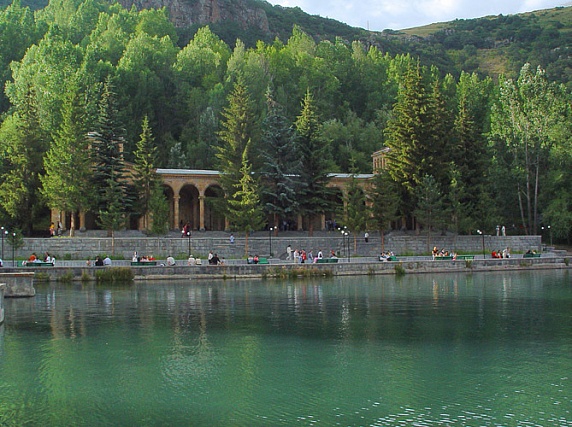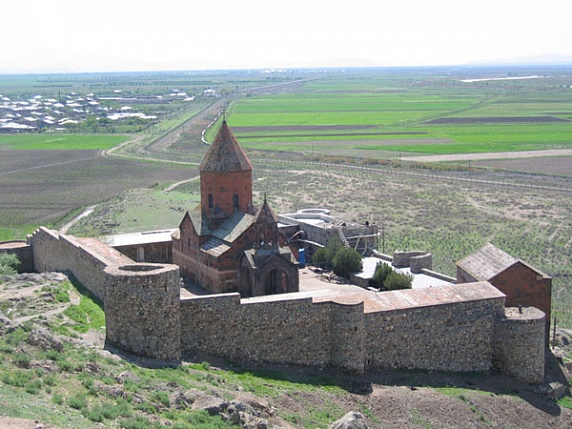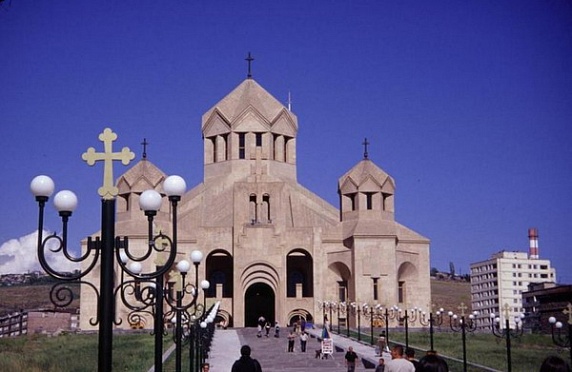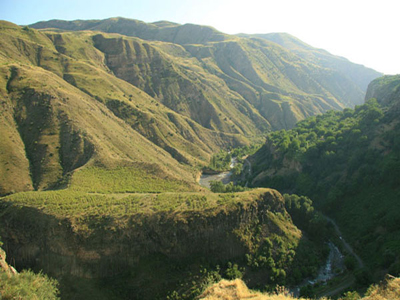 Республика Армения
Республика Армения
Statement by Russian Foreign Minister Sergey Lavrov during the meeting with the faculty of Yerevan State University with participation of the management of Russian-Armenian (Slavonic) University and other higher education institutions of Armenia, Yerevan, 2 April 2012
Dear friends,
I am glad again to visit this building. I retained fond memories of my first visit, which took place five years ago exactly - in April 2007. I remember it until now. The format of the meeting was broader. But appearing before the faculty of the Yerevan State University and some other institutions of higher education is always valuable - because eventually you form world-view of the people to whom the future of Armenia and the Armenian-Russian relations belongs.
We know about the traditions of the oldest institution of higher education in Armenia – the Yerevan State University - and the high level of education which you are famous for. We value your contribution and the contribution of other universities of your country to the educating the youth on the basis of cultural and spiritual values shared by Russia and Armenia.
Successful promotion of ties in the fields of education, science, culture, art, media is both a condition for strengthening the close ties that have long existed between our two countries and a guarantee of durability of the intergovernmental dialogue in future.
The humanitarian component of cooperation becomes especially topical during the era of globalization and rapid development of information technologies, when the limits of national boundaries, ideas, cultural traditions and patterns of development disappear, and when it is important for your own traditions, culture and history not to be lost in the revolutionary explosion of information technology. Moreover, both Russia and Armenia, with their rich history and culture have much to offer in this area to other members of the international community.
Tomorrow we will celebrate the 20th anniversary of establishing diplomatic relations. Of course, these relations go back for centuries. 20 years have passed since the creation of a new geopolitical reality that has evolved with the collapse of the Soviet Union. I think we have passed that period in a decent way. Do not forget that in August, another anniversary comes - 15 years of the Treaty on Friendship, Cooperation and Mutual Assistance.
I think we are approaching the anniversaries with good results. We have a growing cooperation in all fields. The economic and material resources of our alliance and strategic partnership strengthen. Last year we exceeded the pre-crisis level. The goods turnover is approaching USD 1 billion. Russian investments of nearly USD 3 billion have come to Armenia. On the territory of the Republic of Armenia there are hundreds of Russian and joint Russian-Armenian enterprises. We discussed it in detail with the Prime Minister T.S. Sarkisyan, and tomorrow will have the opportunity to discuss the strategic challenges in the development of bilateral relations with President Serzh Sargsyan.
We will certainly touch on humanitarian and cultural contacts. Allegorically, our relationship can be likened to a powerful evergreen tree. These relationships, on the one hand, are based on deep healthy roots, and on the other hand are directed towards new challenges. I am sure that Russian-Armenian relations have a great future.
We appreciate the craving of the Armenian society for Russian culture and Russian language. I hope that not only the Russian centre, established at Yerevan State University by "Russian world" Foundation, assists it, but also the Russian Centre for Science and Culture, which functions in Yerevan. Incidentally, in his speech, Dean of the Faculty of Russian Philology of Yerevan State University made a slip of tongue (as in Freud), saying that in the secondary schools the Russian language is studied along with foreign ones. This slip of the tongue shows that the Russian language is completely not a foreign language, but the language of communication and our friendship. This does not mean that Russia has no need to learn the Armenian language. In the same MGIMO (U), operating under the Ministry of Foreign Affairs of Russia, it is actively taught.
We recorded specific wishes voiced here. I think that much has been done, and out of the ideas proposed by you, at least, a few can be realized by the Government Commission on the Affairs of Compatriots Abroad and those who implement the Russian World programme. Russian Cultural Centre functioning in Yerevan can quickly and easily meet the basic needs in the teaching materials in various formats, including the electronic one. We will continue to do so. I am confident that these efforts will not be in vain.
I would like to say a few words about international affairs. We appreciate the close and fruitful Russian-Armenian cooperation in international structures, primarily in the CSTO and the CIS. We see the interest of Armenia in deeper integration processes emerging within the CIS, keeping in mind, first of all, the Customs Union, United economic space, and the Eurasian Economic Union formed on their basis. With the Minister of Foreign Affairs and the Prime Minister today we discussed the possible ways to connect Armenia to advanced formats of this integration. I think the experts who have corresponding instructions, will find the forms.
We are closely coordinating our approach to the UN, OSCE, the Council of Europe and other formats, including the Black Sea Economic Cooperation Organization. Such coordination is especially important at this critical stage of international development, when, on the one hand, there are new unprecedented opportunities, but on the other hand, there are risks which cannot but cause serious concern. First of all, it concerns the global challenges and threats that directly affect state interests of Russia and Armenia - international terrorism, organized crime and drug trafficking. The case is also about trying to solve international and regional problems by military force in circumvention and violating international law. In this regard, Russia and Armenia occupy a unified position. We do not want the repetition of what happened in the former Yugoslavia, Iraq, Libya, and that can happen now in Iran and Syria. Russia as a permanent member of the UN Security Council will do its utmost for the international law to be respected not only in word but in deed.
Among the issues we are discussing - Euro-Atlantic security issues relating to this very important area. You know Russian ideas on in this regard. We suggest serious consideration of the contract that would ensure equal and indivisible security, and the same protection in the legal form for all states, being member of organizations, such as the OSCE.
In this context, we examined the Nagorno-Karabakh settlement. This problem has only peaceful solution, promoted in the context of the work coordinated by the OSCE Minsk Group (Russia, USA, and France). As part of the efforts and contacts of the "three" with Armenia and Azerbaijan, Russian President Dmitry Medvedev has taken a number of initiatives in the development of which more than a dozen meetings of the Presidents of Russia, Armenia and Azerbaijan took place, in order to agree on a very important document on the Basic Principles of settlement, on the basis of which a peace agreement could be prepared and negotiated. The latest of such meetings was held on 23 January this year in Sochi. Statement, fixing the willingness and interest of the Presidents of Armenia and Azerbaijan to continue seeking agreement on the draft of the Basic Principles, was taken there.]
We presume that this statement reflects the actual position of the party. At the very least, the Russian side is ready to continue mediation efforts in the format of the co-chairs' "three", and within the frameworks of the initiatives promoted by the President of the Russian Federation on the basis of the position of the OSCE Minsk Group.

